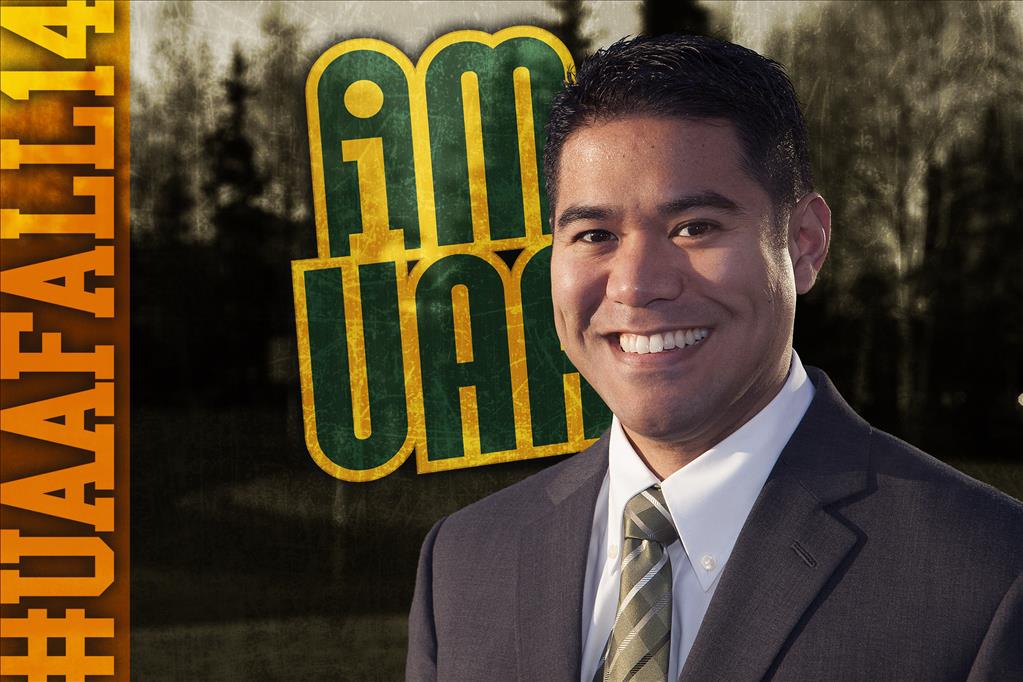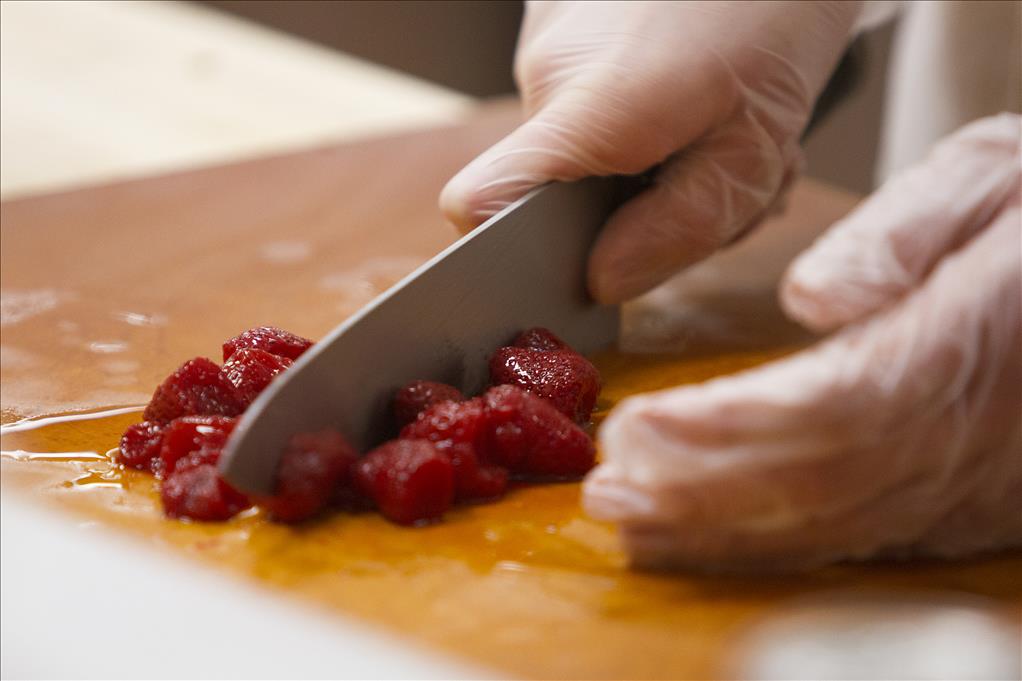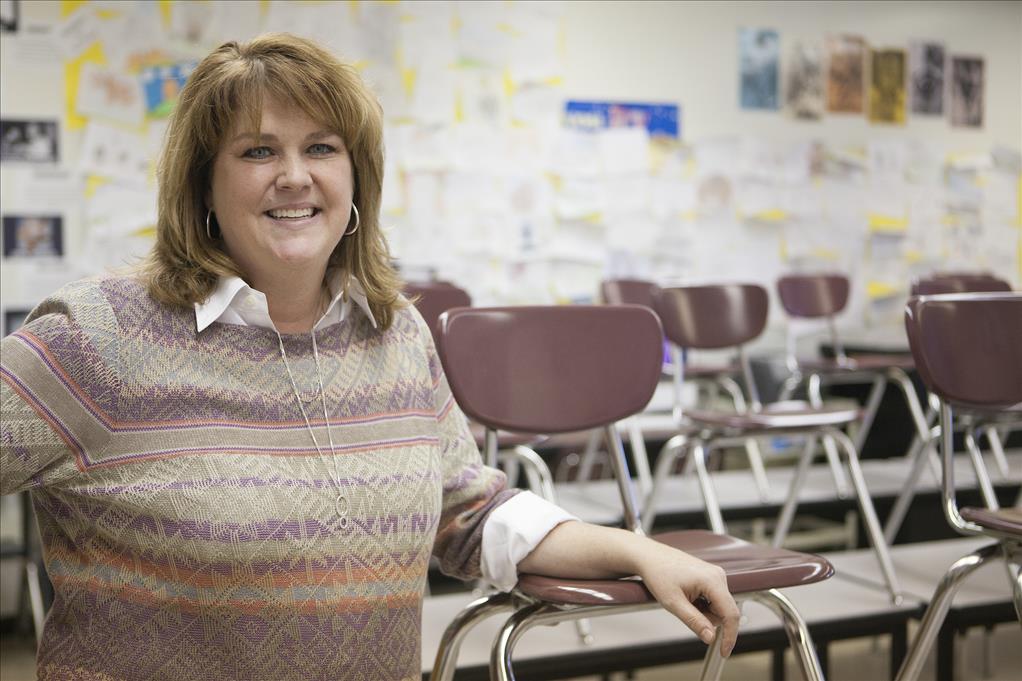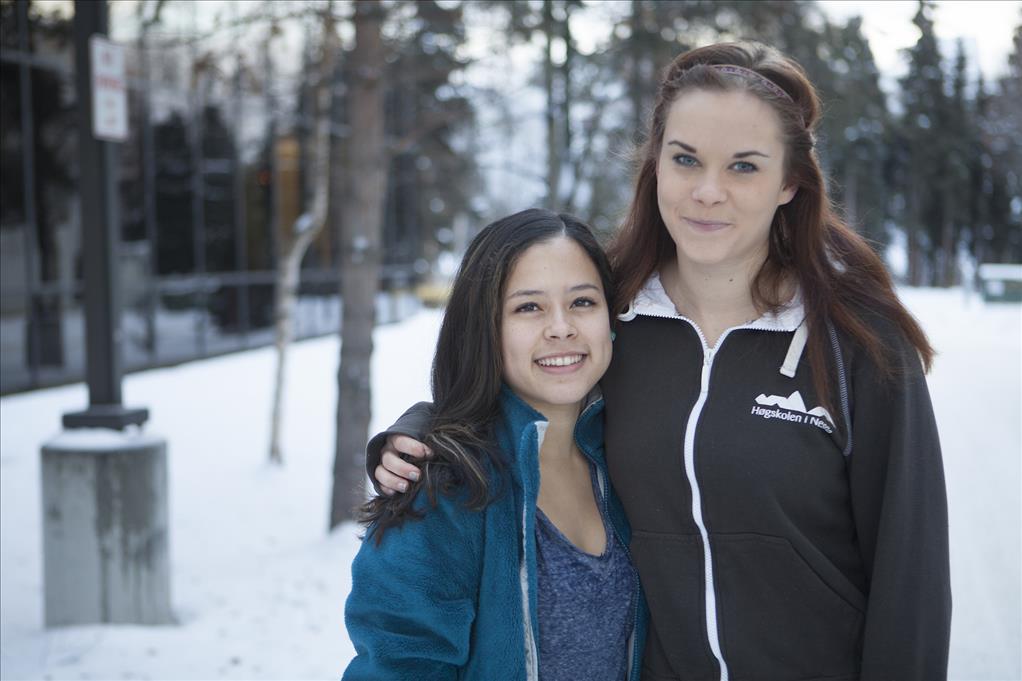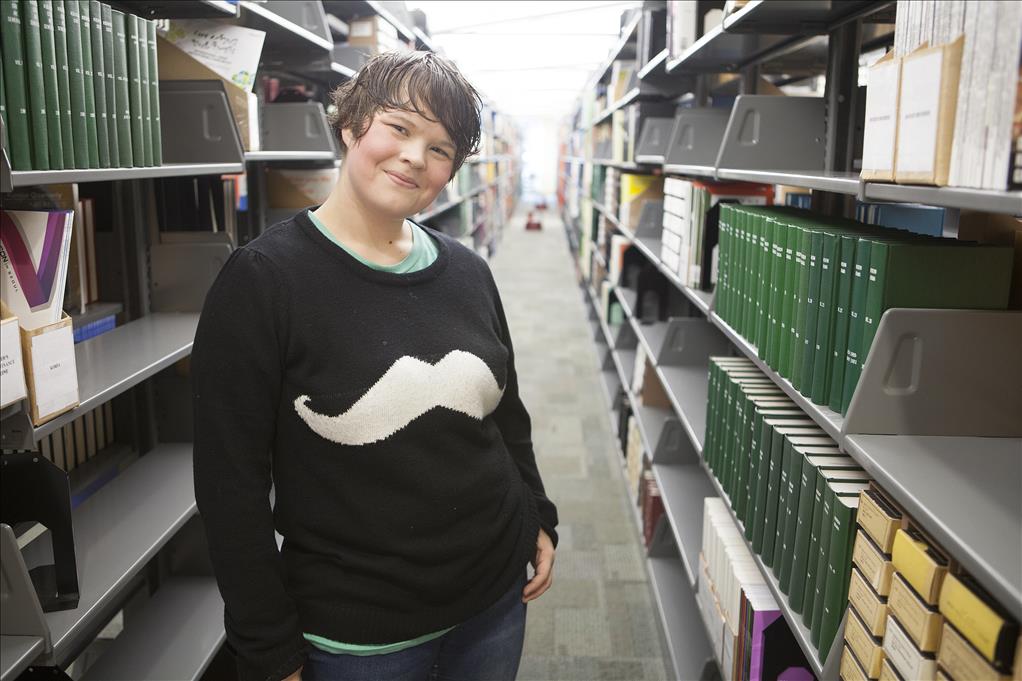Alumni Spotlight: Rahab Kiruku
by Tracy Kalytiak |
B.S. Nursing '06 Hometown: Kiambu, Kenya Fun Fact: Rahab's husband, an accountant, is also a UAA alumnus and also hails from Africa.
Rahab Kiruku works as a registered nurse at Providence Alaska Medical Center, helping patients navigate the transition from day surgery to recovery before they return to their lives outside the hospital.

Rahab Kiruku came from Kenya in 2002 to earn her nursing degree at UAA. She is now a registered nurse at Providence Alaska Medical Center. (Photo by Ted Kincaid/University of Alaska Anchorage)
It's been eight years since she earned her nursing science degree, yet Rahab still has all the letters UAA sent to notify her about scholarships she won.
"You'd get a letter notifying you that you got or didn't get a scholarship," said Rahab, an international student who traveled from Kenya in 2002 to attend UAA. "I'd open the envelope just a little, just enough to see if the first word was 'Congratulations.' If it wasn't, I didn't want to read anymore."
Fortunately, that word appeared inside those envelopes often enough to keep Rahab in school and help her reach her goal.
"I still think about it, how people are so generous," she said. "Scholarships made a big difference in my life. Without scholarships, I would have had to go back home."
Setting a course
Back in Kenya, Rahab lived in Kiambu, a community located at an elevation of 5,600 feet and surrounded by lush hills and farmland-"I would compare it to Eagle River or Palmer, except bigger, with more people, " she said.
As a child, Rahab participated in St. John Ambulance, a program that offered first-aid training to kids between the ages of 12 and 18. She sometimes used those skills at the boarding school she attended, treating nosebleeds, cuts, sprains and bruises.
"There would also be [children] fainting," she said, "because there were specific times when we'd eat, at 7 a.m. and 1 p.m. We didn't eat between, and during assembly, we'd stand a long time."
Science fascinated Rahab, and the thought of using what she learned to help people through times of illness and injury felt emotionally gripping and satisfying.
"I think the human body is very intricate and interesting and I wanted to know how it functioned, know about diseases," she said. "I also liked the aspect of caring for someone, helping them feel safe and better because of the knowledge you have."
Rahab wanted to earn a biology degree and then, perhaps, proceed to medical school in the United States. She talked with her pastor when she was about to graduate from high school, told him she wanted to study abroad and decided to come to Alaska because her church had a sister church, Crossroads Community Church, in Palmer.
"The notion in Kenya was, if you get a degree outside-in Canada or the U.S.-and go back, you get a job more easily," Rahab said. "A degree from outside is valued more. It's a big thing back home, where job opportunities are difficult and unemployment is very high."
Warming up to Alaska
Rahab was 20 when she walked aboard a plane in Nairobi that would launch her journey to Amsterdam, then Minneapolis and, finally, Anchorage.
"It was a long flight," she said. "I traveled by myself, and didn't know what to expect. There were a lot of other people on the plane who seemed to be as confused as I was. I didn't even use the bathroom because I didn't know where to go. And most of the food...it was my first introduction to different food. Cheese-I had no idea what it was. It was scary, but I was just so excited. I cried at the airport, thinking, I'm finally going."
Rahab knew Alaska would be chillier than Kenya, a place where merely dressing in black was all you needed to do to feel warm.
"I didn't get how cold it is. I didn't expect this type of cold," she said. "I came in December, so I brought a jacket. I thought it would be very warm. But when I got outside the airport, it was cold. What I thought would be dressed warm didn't even touch it. It was a good thing my host family got me a jacket. I had to learn to walk on ice-I remember falling a lot."
Rahab was then the only person in the UAA nursing program who was from Kenya-one of just a few Kenyans at UAA, compared to 12 here now and an additional five expected this fall. And, though she spoke English back home, she experienced difficulties in some of her classes.
"My English was the British English and the spelling of some of the words was different," she said. "I had to get used to it. And some of the professors talked so fast-in my Western Civilization class, I would get so lost!" Even so, Rahab excelled, earning a 3.5 grade-point average in classes she took before delving into nursing. Then, in nursing classes, she earned a GPA that was above 3.0, at a time when she was working full time.
The most formidable challenge Rahab faced, however, was paying for school. Her mother-a widow living 20 minutes outside Nairobi-couldn't afford to pay for more than her daughter's first semester of classes. An international student, Rahab's tuition cost three times more than Alaska-resident tuition.
"I had to learn really quickly to find other ways to pay," she said.
Even though she "felt very lucky and blessed" to live with a host family that provided her with room and board, Rahab had to shoulder international student insurance costs and buy books. She was not legally permitted to hold a job off campus, so Rahab earned money by working at the campus bookstore, in the AHAINA student services program and by tutoring students.
"The end of the semester was always bittersweet for me, because I was always wondering what I would do to pay for the next semester," she said. "Sometimes you don't know until the beginning of the semester whether you got a scholarship. I was working full time even though they discourage you from working full time, but you have to get money somehow-you can't just not work."
'I don't know how I would have made it'
Scholarships and tuition waivers offered Rahab some relief from the crush of financial demands.
"I was constantly on the scholarships page, all the time on those websites," Rahab said. Most of the scholarships offered small amounts of assistance-$500, $750, $1,500, but one day, Rahab noticed a scholarship offering $4,000.
"That one covered everything, the entire semester," Rahab said. "After I got that scholarship, I was so happy I wrote a thank-you letter to the donors."
Rahab graduated with her nursing science degree in 2006. She worked for North Star Behavioral Health and then, five and a half years ago, accepted a job at Providence.
"When I look at my experience going through school, I can only say it was a miracle," Rahab said. "I'd like to get to the point where I can help students, because I've been there. It takes the load off someone. I don't know how I would have made it through school without that help."
Helping patients find better lives
While Rahab says she is happy in her career, she feels she could do even more.
"I'm in a position where I care for people, carry out orders, but I'd like to teach, educate, be involved in positive prevention," she said.
Rahab wants to learn more about alternative medicine and instruct people on different ways to take care of themselves and be healthy. "If you're suffering from something, rather than taking medicine, learn more about diet, et cetera, and figure out what got you to that point," she said.
Her work can be wrenching, she said.
"I think what's tough is when you see the suffering, especially with little kids or young people who suddenly die or are diagnosed with a tough illness," she said. "When you're taking care of patients, you're taking care of families. Faith helps, or when there's a recovery or something positive that happens."
Rahab feels heartened as well, especially when she worked in rehabilitation.
"There, I dealt with a lot of neurology patients-spinal cord injuries, strokes," she said. "The brain and heart are so interesting to me. It's fascinating because almost everything that comes through rehab is life-changing. You see a patient not being able to walk or talk and then see them going toward their goal and achieving it. Being able to watch that progress is so rewarding."
Written by Tracy Kalytiak, UAA Office of University Advancement
 "Alumni Spotlight: Rahab Kiruku" is licensed under a Creative Commons Attribution-NonCommercial 4.0 International License.
"Alumni Spotlight: Rahab Kiruku" is licensed under a Creative Commons Attribution-NonCommercial 4.0 International License.










